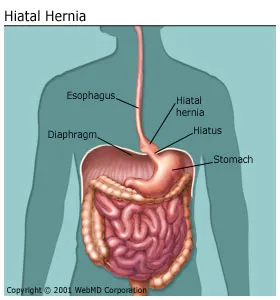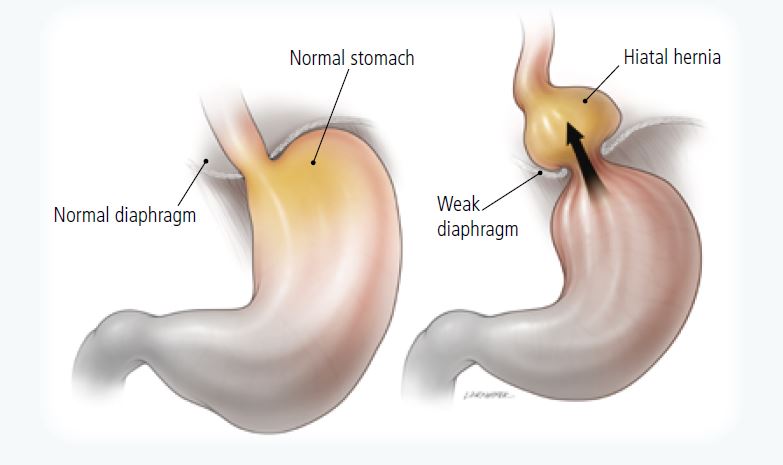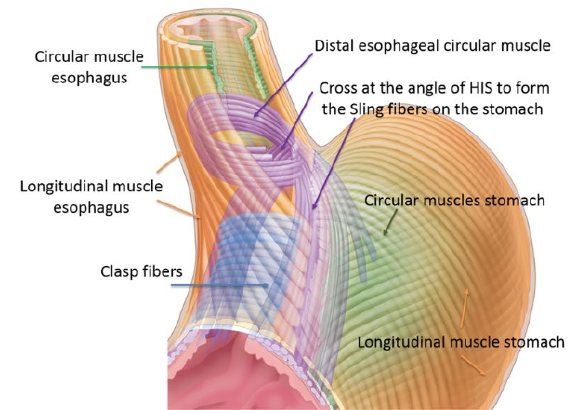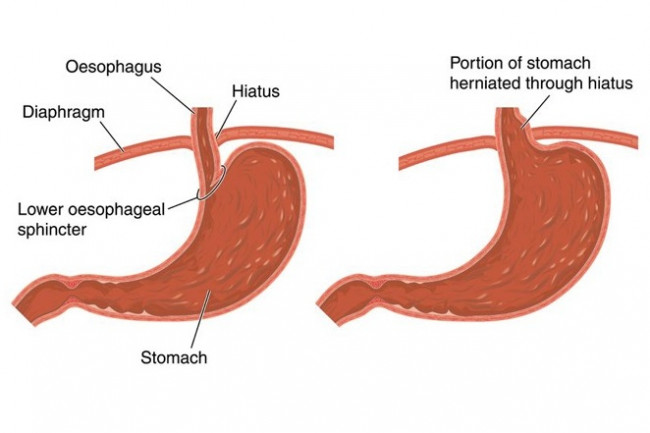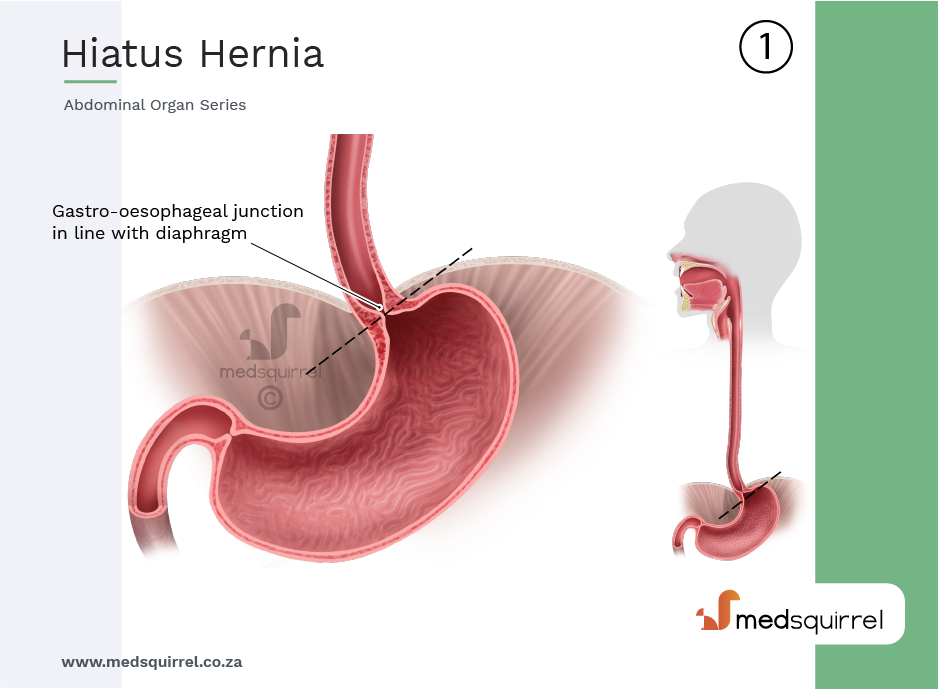Medical Meaning Hiatus Hernia

Protrusion of the stomach up into the opening normally occupied by the esophagus in the diaphragm the great dome of muscle that separates the thoracic chest cavity from the abdomen.
Medical meaning hiatus hernia. The whole stomach the small and large bowels spleen pancreas or liver is pushed up into the chest. What are the signs and symptoms of a hiatal hernia. The junction may reside permanently in the chest but often it juts into the chest only during a swallow.
A hernia may develop in various parts of the body most commonly in the region of the abdomen. Sliding hiatal hernias are those in which the junction of the esophagus and stomach referred to as the gastro esophageal junction and part of the stomach protrude into the chest. Shiel jr md facp facr hernia hiatus.
A hernia may develop in various parts of the body most commonly in the region of the abdomen abdominal hernia. A hiatal or hiatus hernia is caused by the upper part of the stomach pushing out of the abdominal cavity and into the chest cavity through an opening in the diaphragm. Description there are many different types of hernias.
In a hiatal hernia the stomach pushes up through that opening and into your chest. A weak spot or other abnormal opening in a body wall permits part of the organ to bulge through. The most familiar type are those that occur in the abdomen in which part of the intestines protrude through the abdominal wall.
A hiatal hernia occurs when the upper part of your stomach pushes up through your diaphragm and into your chest cavity. Type iii hiatal hernia is a combination of a sliding and a paraesophageal hiatal hernia. A weak spot or other abnormal opening in a body wall permits part of the organ to bulge through.
Type iv complex paraesophageal hiatal hernia. This may occur in. Your diaphragm has a small opening hiatus through which your food tube esophagus passes before connecting to your stomach.
